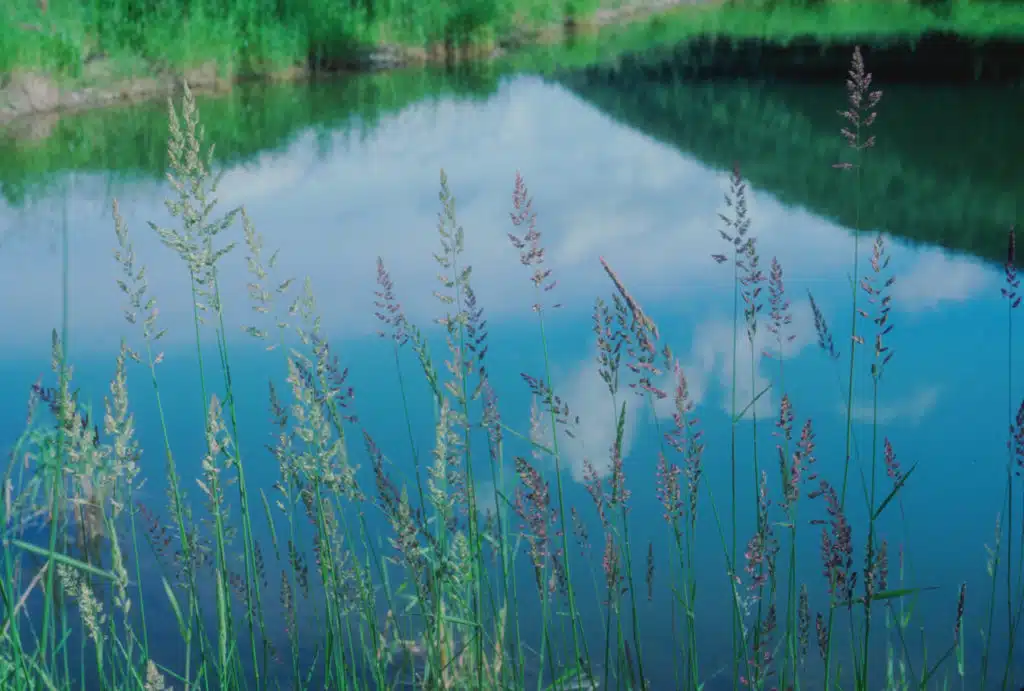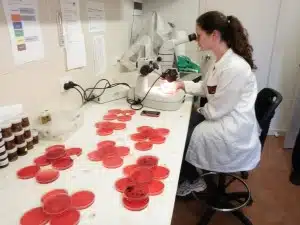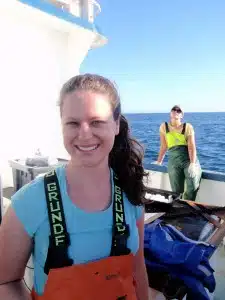Port Lincoln tuna are bigger, healthier and happier when they are kilometres offshore, according to a study by University of Tasmania researchers.
Tuna are normally farmed near the shore, but a study published in the international journal PLoS ONE found that southern bluefin tuna thrive when they’re raised further out to sea.
The researchers collaborated on the world’s first commercial-scale trial of offshore fish development, finding that tuna farmed in deep, turbulent waters gained weight twice as fast as fish reared closer in. They also had better survival rates and superior health.
Lead researcher Dr Nicole Kirchhoff said the research was the first study to show it was possible to produce fish offshore on a commercial scale. “Our results indicate a promising economic future for offshore development,” Nicole said.
“The fish had fewer parasites and they were in overall better condition than fish maintained near the shore. As previous CSIRO research demonstrates, happy and healthy animals not only taste better, but are also better for you.”
The waters at the study site were twice as deep as traditional near-shore farming zones, with stronger currents, winds and waves.
Researchers monitored and sampled tuna reared offshore during a full five-month commercial season. The study included 15 measurements of health, stress and condition.
Nicole said there had been worldwide interest in the economic development of offshore waters for decades, but environmental and economic uncertainty prevented commercial expansion into the deeper ocean.
“We’ve found that farming further from shore actually has benefits beyond fish welfare and commercial success,” she said.
“Globally, moving aquaculture operations offshore may reduce interactions with urban populations and inshore environmental concerns.”
Moving aquaculture offshore might also be necessary in the future with the anticipated effects of climate change.
Further research and development is needed before large-scale offshore commercial development begins.
Dr Nicole Kirchhoff is one of 12 early career scientists unveiling their research to the public for the first time as part of Fresh Science, a national program sponsored by the Australian Government.
Nicole’s PLoS ONE paper is online here: http://www.plosone.org/article/info%3Adoi%2F10.1371%2Fjournal.pone.0023705
And there’s a short bio of Nicole online here: http://www.amc.edu.au/research/people/nicole-kirchhoff
- For interviews contact Nicole Kirchhoff on nicole.kirchhoff@utas.edu.au
- For Fresh Science contact AJ Epstein on 0433 339 141 or aj@scienceinpublic.com.au or Niall Byrne, 0417 131 977 or niall@scienceinpublic.com.au
- For UTas contact Sharon Webb, sharon.webb@utas.edu.au







 Fresh Science is on hold for 2022. We will be back in 2023.
Fresh Science is on hold for 2022. We will be back in 2023.